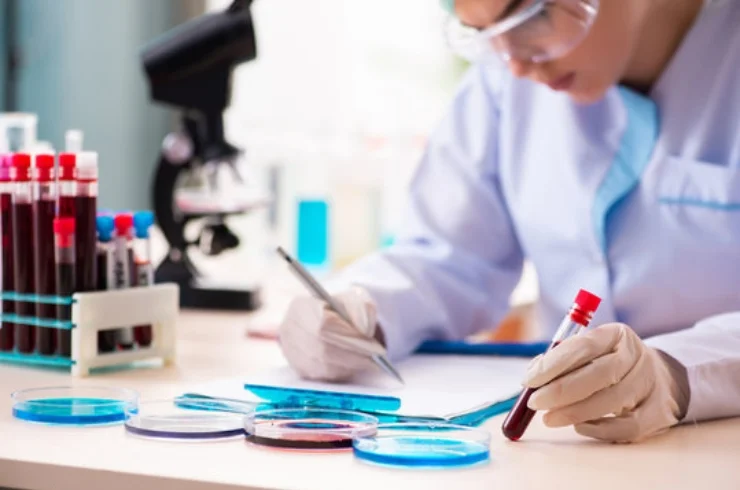Hematology Testing

Hematology Testing
Hematology testing involves the detailed analysis of blood to assess overall health and detect various medical conditions. Blood is a vital component of the body, carrying oxygen, nutrients, and immune cells to tissues and organs. Hematology tests provide critical information about blood cells, their functions, and abnormalities, making them essential for diagnosing and monitoring a wide range of health issues.
Common Hematology Tests
- Blood Grouping and Rh Typing: Determines the ABO blood group and Rh factor, crucial for blood transfusions and pregnancy management.
- Complete Blood Count (CBC): Provides a comprehensive overview of blood components, including red blood cells (RBCs), white blood cells (WBCs), hemoglobin, hematocrit, and platelets. It helps diagnose anemia, infections, and blood disorders.
- Absolute Eosinophil Count: Measures eosinophil levels to detect allergies, parasitic infections, or certain autoimmune conditions.
- Hemoglobin Levels: Evaluates oxygen-carrying capacity, assisting in anemia diagnosis and monitoring.
- Bleeding Time and Clotting Time: Assesses blood’s ability to clot, aiding in the evaluation of bleeding disorders.
- Prothrombin Time (PT) and Activated Partial Thromboplastin Time (APTT): Measure clotting function to diagnose coagulation abnormalities or monitor anticoagulant therapy.
- Erythrocyte Sedimentation Rate (ESR): Identifies inflammation or infection in the body.
- Malarial Testing: Detects malarial parasites, aiding in prompt diagnosis and treatment.
Why Hematology Testing Matters
Hematology tests are indispensable in healthcare, offering insights into both acute and chronic conditions. They help diagnose anemia, clotting disorders, leukemia, infections, and more. Monitoring these parameters ensures accurate treatment and management.
State-of-the-art equipment and expert analysis make hematology testing a cornerstone of diagnostic healthcare, providing precise results for timely interventions and better outcomes.
